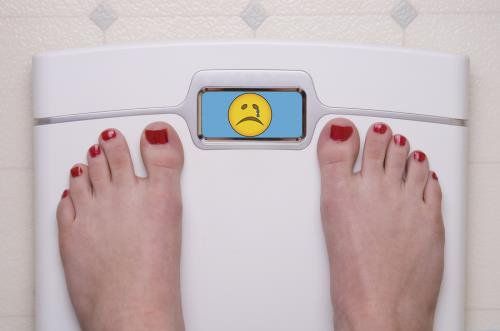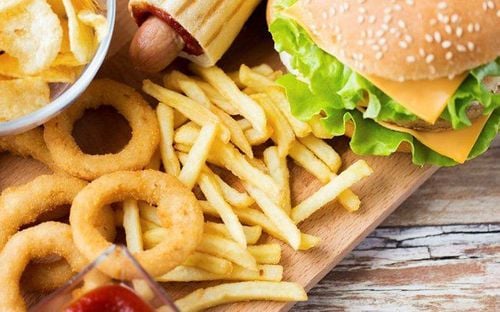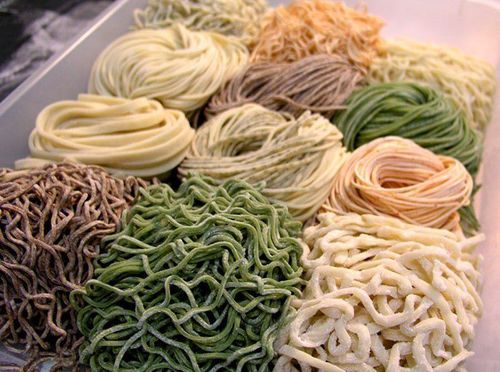This is an automatically translated article.
Shrimp noodles are a simple and economical dish that many people choose, especially students. Currently, there is a lot of information that eating instant noodles is not good for health and can cause weight gain. So is eating instant noodles fat and how do they affect health?1. Is eating instant noodles good for health?
Momofuku Ando invented one of the most influential foods of the past 100 years, instant noodles, also known as instant noodles. Instant noodles were introduced to the U.S. in 1970 by Ando's Nissan Foods, brick-like packets that transform into long, chewy noodles in a salty soup in just five minutes.Along with the simplicity, ease of preparation, and low cost, it is not surprising that this type of fast food is the preferred choice for students who are short of money or lack cooking skills. In fact, instant noodles have provided an important source of nutrition in many students' late-night exam preparation sessions. However, instant noodles can help you deal with hunger, but are they good for your health?
Ron Konzak, author of The Book of Ramen, said: “The noodles themselves are quite harmless. Usually, MSG in packets of noodles can be harmful for people who are on a low sodium diet or who are allergic to one of its ingredients.
MSG, or monosodium glutamate, is a "taste enhancer" used to improve the taste of food, making it sweet, salty, bitter or sour. Instant noodle manufacturers use it to make their instant noodles taste "stronger" and tastier.
According to Stephanie Brooks, a nutritionist for the San Francisco Bay Area, MSG causes allergic reactions in 1 to 2% of the population. Brooks also adds: “People who are allergic to MSG may experience a burning sensation, flushing in the chest and face, or pain and headaches.

Mì tôm có thể gây ra nhiều vấn đề về sức khỏe
One sample of instant noodles from three well-known brands showed sodium intake of 687 to 830 milligrams per serving. That's 28 to 34% of the recommended daily sodium intake for someone consuming a 2,000-calorie-per-day diet. On top of that, each packet of noodles contains 7 to 11 grams of fat, or 11 to 17% of a person's recommended daily fat intake. Experts warn that people who need to avoid eating instant noodles that are high in sodium and MSG include:
People with high blood pressure People who are taking diuretics or certain antidepressants such as MAO inhibitors. People with congestive heart failure Of course, the people who use the most instant noodles the most are young people, and most of them don't have digestive problems. Some people still use instant noodles even though they know the harm it causes to the body, but because of economic conditions, they may still have to use it. However, if you still want to use instant noodles, you should learn recipes that use instant noodles wisely. There are many recipes that don't make use of the high-sodium flavor packets in instant noodles.
MORE: Is it good to eat a lot of instant noodles?
2. Is eating instant noodles fat?
One study found that more than half of the American diet consists of so-called ultra-processed foods, including instant noodles. These foods account for 90% of excess sugar consumed by Americans, researchers say. Ultra-processed foods are a combination of several ingredients, including salt, sugar, oils, and fats. They also contain chemicals not normally used in cooking, such as flavorings, emulsifiers and other additives designed to resemble real foods, the researchers say. Lead researcher Euridice Martinez Steele from the nutrition department of the School of Public Health at the University of Sao Paulo in Brazil said: “Reducing consumption of ultra-processed foods could be an effective way to reduce added sugars excess in the United States”.Ultra-processed foods include:
Soft drinks Packaged snacks Sweets and desserts Packaged baked goods Pasta and soup Reconstituted meat products, such as chicken and fish. Having too much sugar in the diet increases the risk of having bad health conditions such as:
Weight gain, obesity. Type 2 diabetes Heart disease Tooth decay Along with that, one study found that an energy imbalance of 50-100 kilocalories per day could be enough to cause gradual weight gain in most people. So eating a lot of instant noodles and ultra-processed foods can make you gain weight.
MORE: Are instant ramen noodles harmful?

Ăn nhiều mì tôm có thể gây ra hiện tượng tăng cân
People should avoid products that do not require preparation, such as instant noodles, packaged soups, frozen dishes and sandwiches, cold cuts and hot dogs, instant sauces. The researchers looked at information from more than 9,000 people. They all participated in the 2009-2010 National Health and Nutrition Examination Survey. Study volunteers provided information about their diets. The researchers found that added sugars accounted for more than a fifth of the calories in the average ultra-processed food product. This is eight times more than the calories from added sugars found in other foods.
The researchers note that the upper limit of calories from sugar is 10% of a person's total daily calories. In people who eat a lot of ultra-processed foods like instant noodles, more than 80% exceed the upper limit of sugar intake. Only people who ate less processed foods had lower-than-recommended sugar levels, the researchers said.

Một số thực phẩm chế biến sẵn sẽ gây tăng lượng đường trong máu
This survey highlights the amount of ultra-processed foods in the American diet and the excessive amounts of sugar, salt, and fat found in these foods. Also, another potential problem in instant noodles as well as ultra-processed foods is that food companies chemically design products to induce cravings for those foods. It is the sugar, fat, and sodium that are a big part of these recipes. The only way to disrupt chemical cravings and reduce your intake of added chemicals, calories, sugar, fat, and sodium is to prepare more foods at home.
Now that you know the truth about instant noodles, maybe it's time to start worrying about this essential food and need a healthy menu for you and your family.
Please dial HOTLINE for more information or register for an appointment HERE. Download MyVinmec app to make appointments faster and to manage your bookings easily.
Reference source: webmd.com













